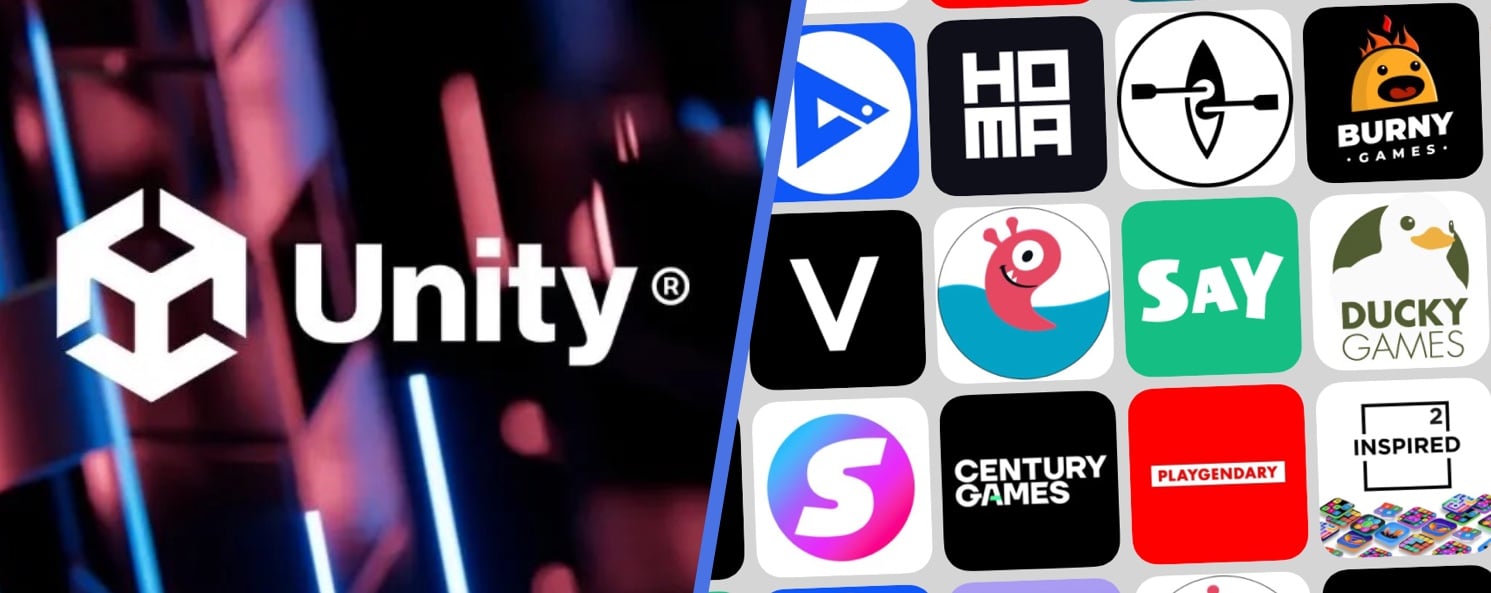Mobile game developers are now boycotting Unity by switching off its ad products, mobilegamer.biz can reveal.
The group is trying to force Unity into cancelling its proposed Runtime Fee policy.
At the time of publication, 16 different studios have pulled their Unity and IronSource ads: Azur Games, Voodoo, Homa, Century Games, SayGames, CrazyLabs, Original Games, Ducky, Burny Games, Inspired Square, Geisha Tokyo, tatsumaki games, KAYAC, New Story, Playgendary and Supercent.
Collective letter from game development companies: Turning off all IronSource and Unity Ads monetization until new conditions are reviewed
We are the collective voice of the game development industry—developers, game designers, artists, and business minds. Passionate about our craft, we’ve invested years in shaping an industry that touches the lives of millions worldwide. As stakeholders, we cannot remain silent when a decision threatens to destabilize this ecosystem.
Unity has been an instrumental force in this industry. In many ways, it has inspired us to create new immersive worlds and empowered a plethora of dynamic and independent developers to bring their visions to life. We’ve played our part in this journey, moving the industry forward and creating specialists that use Unity as the primary game engine for their projects.
We’ve hosted Unity-centered events, shared our knowledge, and crafted educational content that’s inspired an international community. Thanks to this symbiosis, Unity has evolved into a cornerstone of game development and is now established as an indispensable asset in game creation.
That’s why the September 12 announcement hits us hard. Effective January 1, 2024, Unity plans to introduce installation-dependent fees, a decision that jeopardizes small and large game developers alike, made without any industry consultation. To claim, as Unity has, that this new ‘Runtime Fee’ will impact only 10% of the industry is not just misleading, it’s patently false.
We strongly oppose this move, which disregards the unique challenges and complexities of our industry.
While we’ve always viewed our work as a collaborative effort, this decision blindsided us. With one stroke of the pen, you’ve put hundreds of studios at risk, all without consultation or dialogue.
To put it in relatable terms—what if automakers suddenly decided to charge us for every mile driven on the car that you bought a year ago? The impact on consumers and the industry at large would be seismic.
This comes at a time when the industry is already grappling with tightening profit margins, heightened competition, and escalating costs in both development and marketing. This isn’t just about developers. This impacts artists, designers, marketers, and producers. It’s a cascade that could lead to the shuttering of companies that have given their all to this industry.
Unity, we’ve stood by and celebrated your every innovation. Why, then, were we left out of the conversation on a decision so monumental?
As a course of immediate action, our collective of game development companies is forced to turn off all IronSource and Unity Ads monetization across our projects until these changes are reconsidered.
We urge others who share this stance to do the same. The rules have changed, and the stakes are simply too high. The Runtime Fee is an unacceptable shift in our partnership with Unity that needs to be immediately canceled.
We entered this industry for the love of game development, but what makes it truly special is the community—a community built on openness, shared expertise, and collective progress.
If you share our sentiment, we call on you to join us. Turn off all IronSource and Unity Ads monetization until a fair and equitable resolution is found.
You can also back the movement by signing our open letter. Check out the link to add your voice to the cause.
Sincerely,
Azur Games, Voodoo, Homa, Century Games, SayGames, CrazyLabs, Original Games, Ducky, Burny Games, Inspired Square, Geisha Tokyo, tatsumaki games, KAYAC, New Story, Playgendary, Supercent
…and all who sign this letter, engage in other forms of protest, or simply stand in solidarity with the gaming industry



I don’t think that’s going to happen as long as the ownership structures surrounding shareholders remains the same. It’s not the average person who invests in Unity that’s doing this, it’s the wealthy equity firms with significant holdings that are pushing for this unsustainable behaviour. After the 2008 crash, the EU, the US, Canada, and the UK all did studies on the economic stability of coops (1-person-1-vote democratically owned businesses) versus traditional companies and found that the coops were considerably more sustainable:
There’s also a study using 100 years of data on French wine coops vs non-coop wine companies showing similar results: not only do coops survive longer, the survival rate gap widens over time as more and more non-coops collapse [Cooperatives versus Corporations: Survival in the French Wine Industry. Journal of Wine Economics, 13(3), 328-354. doi:10.1017/jwe.2017.1]